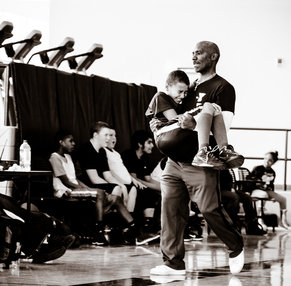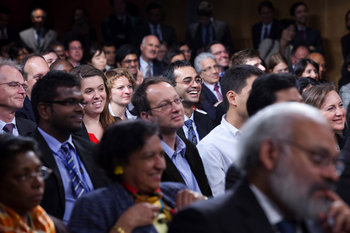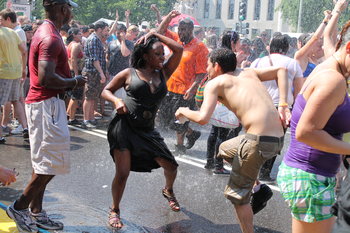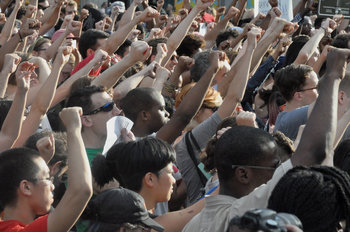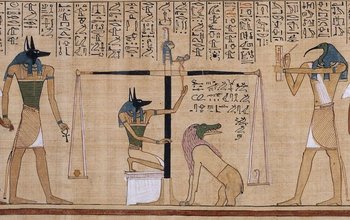
Human Rights
Natural rights are more or less synonymous with human rights. These recognize the dignity of all people with equal rights that provide a foundation for freedom, justice and civility.We hold these truths to be self-evident, that all men are created equal, that they are endowed by their Creator with certain unalienable Rights, that among these are Life, Liberty and the pursuit of Happiness.
~ United States Declaration of Independence, July 4, 1776
Inalienable Rights
Inalienable rights, or unalienable rights, are rights that can't be given up by an individual or denied by laws. For example, an employment contract that effectively makes someone a slave wouldn't be allowed in a nation that grants inalienable rights. Laws may limit inalienable rights only where they are designed to protect other inalienable rights. An individual may have an inalienable right to freedom of movement but this doesn't mean you can't make a law to restrict driving speeds to protect the right to life.Negative Rights
A negative right is a right not to be subject to an action. This is essentially a freedom. For example, the right not to be detained or imprisoned without due process of law. The following are common freedoms referenced in the constitutions of nations and similar documents.Freedom from Unreasonable Search or Seizure | Freedom of Association |
Freedom of Conscience & Religion | Freedom of Movement |
Freedom of Peaceful Assembly | Freedom of Speech |
Freedom of Thought | Freedom of the Press |
Integrity of the Person | Parental Rights |
Right to Liberty | Right to Life |
Right to Marriage | Right to Privacy |
Positive Rights
Positive rights are entitlements owned to an individual by a society. The following are common examples that could arguably be natural rights.Freedom of Information (transparent government) | Right of Defence (legal defence) |
Right to Education | Right to Health |
Right to Petition (the government) | Right to Police Protection |
Right to Vote | Rights of Children (right to protections and opportunities in childhood) |
Notes
Postmodernists embrace the doctrine of relativism that claims there are no universal truths. This would deny the existence of natural rights such as human rights in favor of cultural or individual interpretations. For example, an individual that can grant themselves rights they have invented and try to enforce this in their dealings with society. This may seem terribly unworkable but postmodernists may firmly believe that all universal truths are simply tools of control that are "imposed" by a culture or system.| Overview: Natural Rights | ||
Type | ||
Definition | Freedoms and entitlements that are universal and inalienable such that they can't be denied by laws nor can they be bought and sold. | |
Related Concepts | ||





